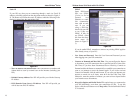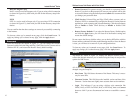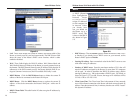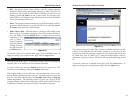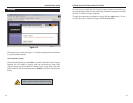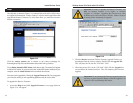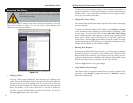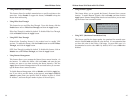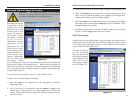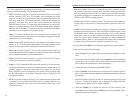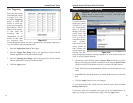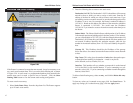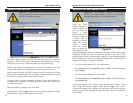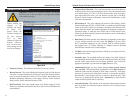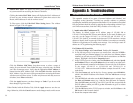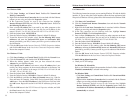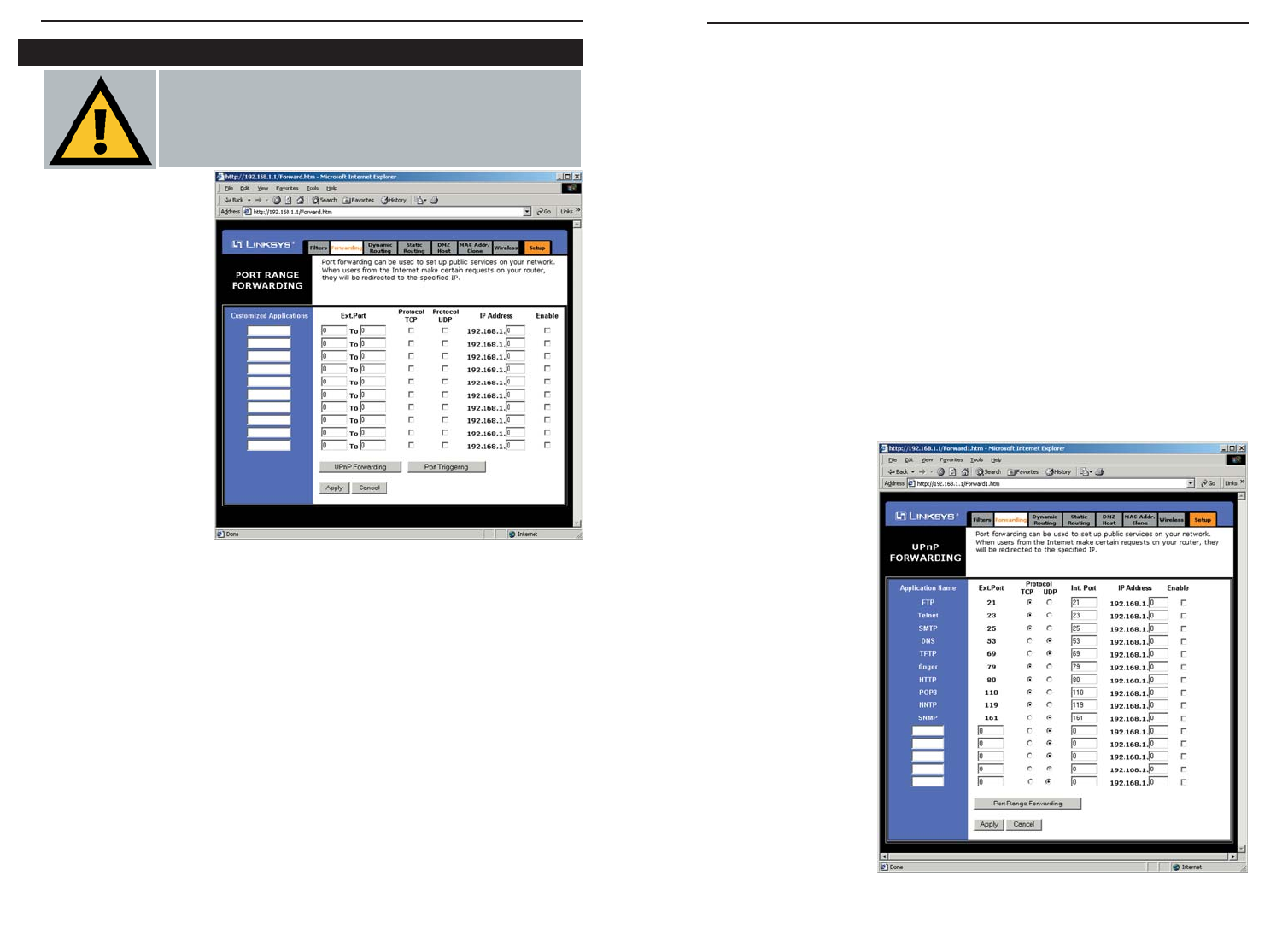
3. On the same line, select the protocol TCP or UDP, or select both protocols.
4. Enter the IP address of the server that you want the Internet users to be
able to access. To find the IP address, go to Appendix D: Finding the MAC
Address and IP Address for Your Ethernet Adapter.
5. Check the Enable box to enable the services you have defined. Port Range
Forwarding will not function if the Enable button is left unchecked. This is
disabled (unchecked) by default.
6. Configure as many entries as needed—the Router supports up to 10 ranges
of ports. Click the Apply button when you are done.
UPnP Forwarding
Clicking the UPnP Forwarding button on the Port Range Forwarding tab will
display the UPnP Forwarding tab. The UPnP Forwarding tab, shown in Figure
5-17, displays preset application settings as well as options for customization
of port services for other applications.
This table is similar to
the Port Forwarding
table, but the items on
this table will automat-
ically synchronize with
other UPnP devices
and operating systems,
such as Windows XP.
Figure 5-17
Port Range Forwarding
from this tab, as shown
in Figure 5-16, sets up
public services on your
network, such as web
servers, ftp servers, e-
mail servers, or other
specialized Internet
applications.
(Specialized Internet
applications are any
applications that use
Internet access to per-
form functions such as
videoconferencing or
online gaming. Some
Internet applications
may not require any
forwarding.) When
users send this type of request to your network via the Internet, the Router will
forward those requests to the appropriate PC. Before using Forwarding, the
DHCP function on the PC whose port is being forwarded must be disabled and
have a new static IP address assigned because its IP address may change when
using the DHCP function.
If you need to forward all ports to one PC, see the “DMZ” section.
To add a server using Port Range Forwarding:
1. Enter the name of the application in the appropriate Customized
Applications field.
2. Next to the name of the application, enter the number or range of the
external port(s) used by the server or Internet application in the Ext. Port
column. Check with the Internet application software documentation for
more information.
42
Advanced Tab: Port Range Forwarding
Important: Port Range Forwarding is an Advanced
Function. No changes should be made to this tab without a
thorough understanding of networking concepts.
Figure 5-16
Instant Wireless
®
Series
Wireless Access Point Router with 4-Port Switch
41



